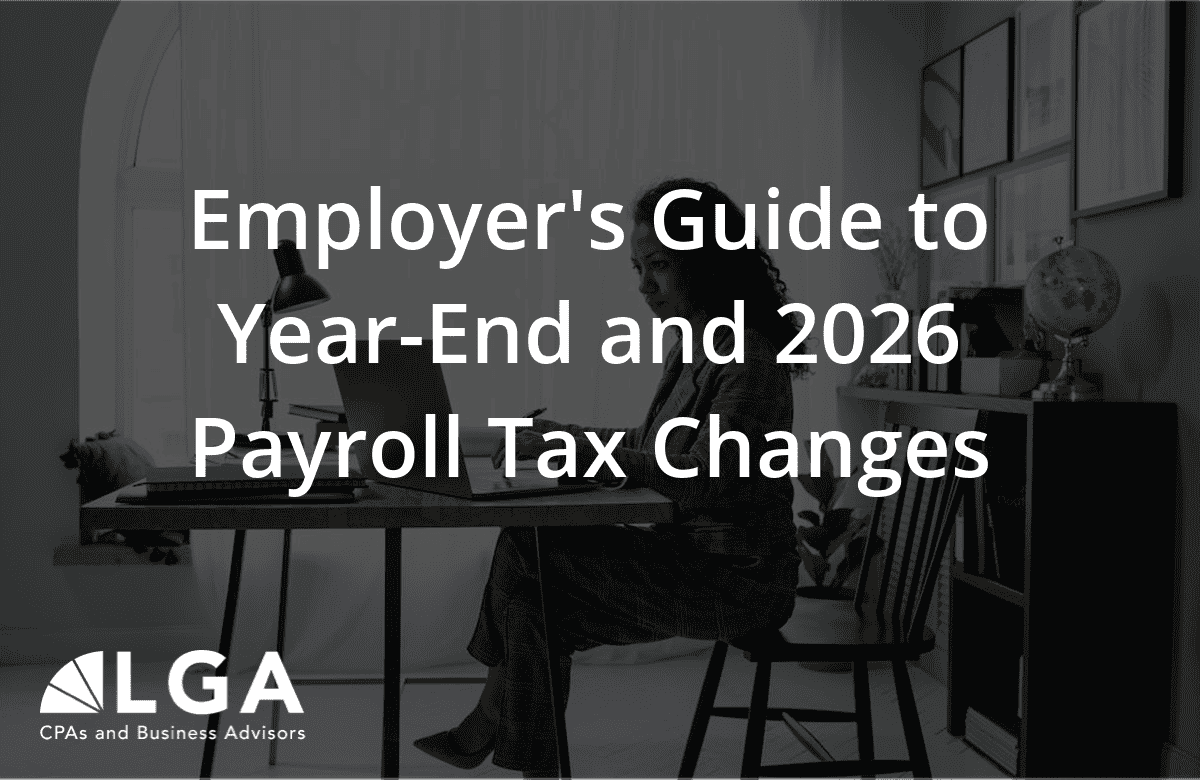
I suspect many people hear “fractional CFO” and think “numbers people.” They assume that bringing someone in for this role is all about the financial side of the equation, as the acronym would suggest.
In reality, while financial performance and process oversight are at the heart of the fractional CFO’s role, this work is as much about operational analysis as it is about accounting and finance. When we enter a new client’s business, the goal is not just to maintain the status quo. We’re also there to help clients identify inefficiencies and missed opportunities costing them money and suggest specific remedies to improve financial performance. Providing valuable guidance that helps a business increase revenue and control costs requires doing much more than looking at the numbers – it requires digging into what’s going on operationally.
What Happens When a Fractional CFO Comes in to Improve Operations?
Naturally, the leadership team might not know what to expect if an organization has never brought in someone in a fractional CFO capacity. “Improving operations to improve financial performance” is vague. You might wonder, will this person come in, look over our shoulders, and tell us we’re doing everything wrong? Or suggest we make changes we really don’t want to make? Or try to tell us how to do business in an industry in which we’re the experts?
I can’t tell you exactly what to expect when a group like ours comes into your business in a fractional CFO capacity because the client ultimately sets the tone and expectations. That often starts with the budgeting and forecasting processes that I wrote about last month, which are also unique to every client.
Once the basic financial processes are evaluated and understood, we will typically dig a bit deeper into the operational drivers. However, the success level of this phase largely depends upon the access our team is given to the department leaders and the business details. Some clients want the fractional CFO team to work only with the President/CEO, or with just a few people in leadership roles. Suppose we have questions about something that’s going on within the production department, marketing department, or with the shipping and receiving process. In that case, the level of understanding we can gain will be limited.
Other clients give carte blanche access to their teams and their processes. We could speak with the heads of every department. We might talk with the sales team about revenue projections and the pricing team about their process, which provides a better sense of how the day-to-day operations function rather than hearing about operations in a macro sense from the company leaders. Ultimately, the goal is to learn as much as possible about the client’s processes and the key drivers of business performance.
Once the operational review is complete, we might proceed in various ways, depending on the client’s goals and preferences. We might generate a list of suggestions for concrete ways to improve financial performance and let the client decide what to implement. Or, sometimes, clients want hands-on help developing and facilitating new or better operational processes. It can be helpful to have a neutral third party come in and explain how to improve a flawed process and even facilitate the change management process. Employees can sometimes get upset or embarrassed by being called out by managers or peers for shortcomings or inefficiencies in their management processes. At the same time, an impartial outsider can say, “I think there may be some ways you could modify or enhance this process” objectively, matter-of-factly, so that no one feels attacked by their internal colleagues.
Specifically, How Can Improving Operations Improve Financial Performance?
Sometimes, improving operations can improve financial performance in considerable, noticeable ways. In other instances, improving operations is more about the “butterfly effect.” You drive a series of subtle shifts and tweaks that slightly raise productivity, efficiency, and even morale, and over time, those positive benefits lead to more extensive benefits and, ultimately, bigger profits.
I’ll give you an idea of some specific ways that our operational analyses can impact a business’s financial performance:
• Identifying past operational decisions that haven’t been successful. This analysis is often an outcome of the budgeting and forecasting processes. It involves looking at past results, looking at current performance, and looking at future projections, then digging into what was happening operationally when the business has either exceeded or fallen short of its goals. It’s sort of like solving a mystery. What drove the trends that you’re seeing, and have the causes been studied and adjustments implemented? We help determine how the business can remedy/avoid repeating past mistakes and how they can further enhance/expand initiatives or approaches that have been successful.
• Eliminating inefficiencies and creating processes that are missing. Coming in as an impartial party, we can identify the areas where a client’s processes don’t seem to be working at peak efficiency. Sometimes, our role involves suggesting or even designing entirely new ways to do things more efficiently in terms of labor and other resources. In identifying opportunities and executing changes, we draw upon our extensive experience with financial and operational analysis, evaluation and implementation of best practices, and background in facilitating process improvement.
• Fine-tuning gross margin performance. Assessing pricing strategy in the context of gross margin maintenance and/or growth can be a challenging area. Pricing not only involves covering direct costs but also remaining competitive within the market. Companies will often focus too heavily on what the market allows and price their products or services defensively rather than confidently. This can interfere with their ability to maintain margins when direct labor costs, material costs, and product delivery costs inevitably go up over time. Successful businesses develop strategies for achieving their gross margin goals and remain creative and nimble in pricing and cost management practices. We analyze these relationships, evaluate benchmarks, and provide objective advisement on pricing approaches and practices for maintaining or growing margins.
• Improving accountability and communication, both internally and with customers. I’ll provide a real example to illustrate how improving accountability and communications can translate directly to improved financial performance. We have worked with several construction clients who did not have tight policies regarding change orders and client-driven project delays, which are common challenges within the industry. Their customers would often make last-minute changes, which would lead to schedule delays and productivity challenges for the team. Without solid policies and communication processes, the construction company would often eat some or all of the costs associated with those delays.
Separately, when customers would modify the scope of a project, or the materials involved in the original project, there was a potential for an unhappy customer or a negative financial result for our client if the process around change orders was loose or confusing.
These scenarios often resulted in material impacts to financial performance and/or client satisfaction, which could be avoided or at least minimized through improved contract structure, communication with the customers, and follow-up in enforcing the agreed terms. It seems simple, but these are areas people often don’t want to grapple with, and they simple accept the consequences, at least until they become aware of the extent of the financial impact. We help identify and quantify the impact of these types of issues within our operational work.
How Could Your Business Improve Operations and Improve Financially?
LGA’s Fractional CFO practice is about much more than looking at numbers. We make our best effort to develop an operational understanding with each client before we start making recommendations, allowing us to give detailed, specific, and actionable guidance. Our advisory services are tailored to each client’s needs. Maybe you’re not even sure what kind of help your business needs to improve operations and increase revenue, but we can help you figure that out, too. I’m happy to talk about what our Fractional CFO advisory services might be able to do for your business, so contact me today!






